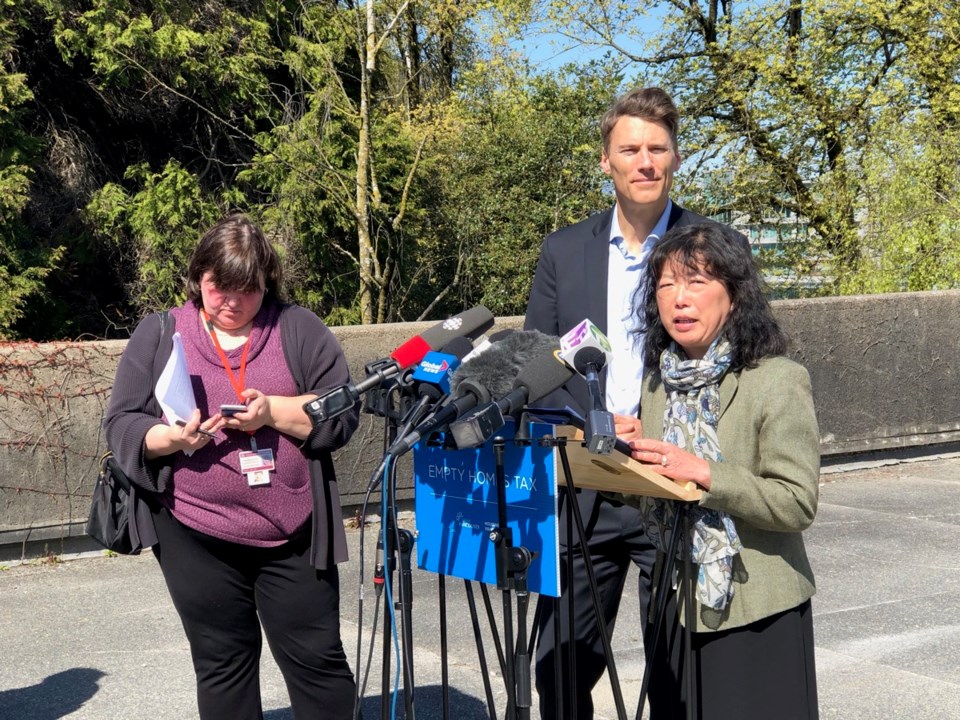Vancouver has already collected $17 million from the empty homes tax and is expecting to bring in an estimated $30 million in the first year.
Mayor Gregor Robertson made the announcement at a press conference Monday morning. He said that the revenue generated from the new tax will be invested in affordable housing initiatives, after covering the one-time implementation costs of $7.5 million and the first-year operating costs, which come in at $2.5 million.
“Our hope was that the tax would be an incentive for owners to rent out their homes that are empty for most of the year,” Robertson said. “For those who didn’t make their empty home available for rent, they have made – or will be making – a welcome contribution to Vancouver’s affordable housing programs.”
Homeowners in the city had until March 5 to submit a declaration. A total of 183,911 declaration were made with just under 8,500 properties determined to be vacant – 1,200 were declared vacant by the owner while another 2,100 homeowners failed to make a declaration. Those properties were subsequently deemed vacant and are subject to the tax.
Another 5,200 properties were declared exempt from the tax for a variety of reasons, including 1,560 that were under renovation or redevelopment, 2,480 where the property title transferred during the year and 560 due to strata restrictions on rentals. Other exemptions included cases where the owner had to go into care or had died, and properties that are occupied for more than 180 days for work in the city.
The majority, 43 per cent, of the 1,200 properties that were declared vacant by the homeowner are downtown. Thirteen per cent are in the West End, six per cent in Kits and five per cent in the Fairview neighbourhood. All other areas of the city were in the one to four per cent range.
The tax is based on one per cent of the assessed taxable value of the property. Robertson said the payments range from $1,500 up to $250,000, with the average payment at around $10,000.
Robertson said that while revenue from the tax has been earmarked for affordable housing, the city will consult with the public before making final decisions how the money will be used to support affordable housing.
The main aim of the tax was to provide an incentive for home owners to rent out homes that are not lived in full time. Robertson said that while the vacancy rate has only increased marginally, to 0.8 from 0.7, the city has heard anecdotally that the pressure on the rental market has started to ease.
“With a near-zero vacancy rate, we can’t have homes sitting empty while people who want to live and work in our city are struggling to find a place to rent,” Robertson said.
The city is currently auditing declarations and reviewing disputed tax bills, and an update and on declarations and the amount of revenue collected is expected in the fall.
@JessicaEKerr



